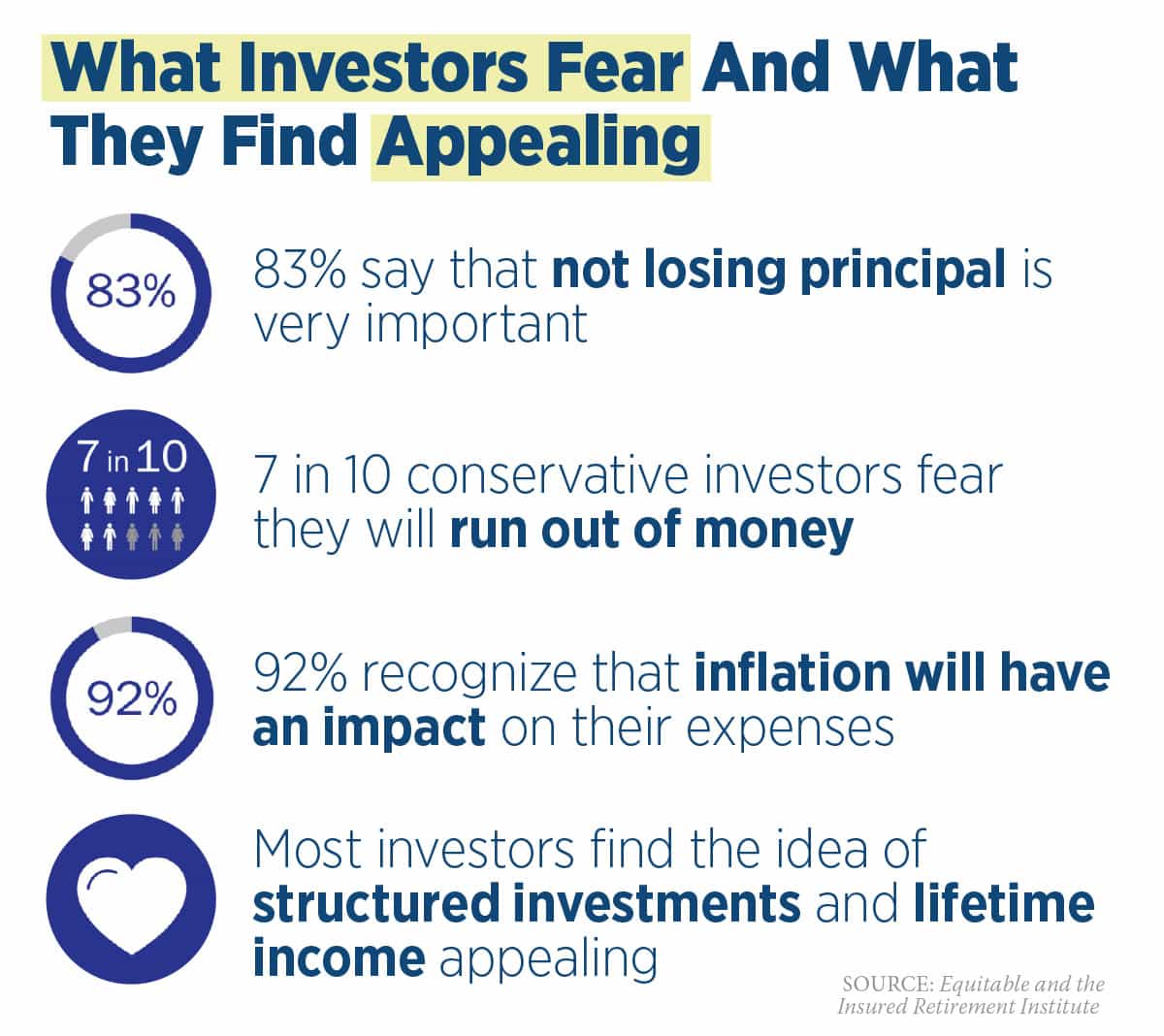How Annuities Can Smooth Rough Financial Waters

During times of uncertainty, many clients are concerned about their investments, savings accounts, portfolios and overall financial plans. I’ve had numerous conversations with clients about how they should invest their money in times of market volatility and overall uncertainty.
And of course, it’s important for financial professionals to discuss the potential benefits of a balanced asset allocation approach — no matter what the market is doing — that includes equities, bonds, alternative investments and annuities.
We’re slowly seeming to emerge from one such period of uncertainty, and equity markets have performed well. As such, many financial professionals and clients may not be thinking about what they might need the next time the waters get rough. But now may be the time to put in place the tools, or insurance, that clients may need in order to withstand the next downturn.
Many clients may not think of annuities as an asset class that could play an important role in their portfolio, even though they have the ability — depending on the type — to provide some tax protection, market participation with downside protection, or income guarantees that can act as retirement insurance.
Here are best practices for financial professionals to help guide their clients on how to incorporate annuities into their portfolio. They include why it is important for financial professionals and clients to view annuities, like insurance, as an asset class — during times of recovery and times of uncertainty. Just like all insurance, it never seems worth it until you need it, but then it’s a relief to have it in place.
The Importance Of Financial Protection Products
Due to the continued economic uncertainty for many, there is a growing need for financial products that provide some level of protection against market volatility and low interest rates. For those nearing retirement, registered index-linked annuities are a way to continue to participate in potential upside in equity markets while reducing some of the risk of the ups and downs of the market.
Some clients may not be interested in investing in the equity markets or may have pulled money out of the market because of the volatility we saw at the start of the COVID-19 crisis. Instead of letting clients miss out on growth opportunities, if appropriate for the client’s goals and risk tolerance, financial professionals can work with clients to incorporate a partial downside protection strategy using a RILA to help them more comfortably get back invested or stay invested in the market over the long term.
We’ve seen recent growth in RILA annuity sales over the past several years. These types of annuities can help many investors stay invested in the market, take advantage of potential upside to help them keep pace with inflation and fund a longer retirement while also mitigating some of the downside risk that may make them uneasy. Finding the right balance between growth and risk is essential given the current uncertainty. I suggest financial professionals work with clients to determine where these types of annuities can fit best into their portfolios.
Help Investors Stay In The Market And Handle Unexpected Costs
A variable annuity is another type of annuity to consider implementing in a client’s portfolio.
The potential for investment loss keeps many investors from investing in stocks; however, variable annuities can provide a way to capture some of the upside potential of stocks and secure a minimum level of income.
While individuals still need to capture growth from the market to fund longer retirements, they also need to balance that with some protection against losses and their potential need for an effective, tax-efficient distribution strategy. Annuities can help people think differently about how they draw down on their portfolio to create income.
Furthermore, individuals may be able to wait out market fluctuations for discretionary expenses if their basic expenses are covered by an annuity. Unexpected costs, both those that arose from COVID-19 and other more commonly unanticipated costs, such as unforeseen medical expenses, should be factored in to anyone’s retirement savings plan. In addition to paying for unexpected costs, annuities also provide asset and tax protection, as they are tax-deferred vehicles that can avoid capital gains taxes.
The Benefits Of Annuities During Economic Uncertainty
During times of uncertainty, financial professionals should work with clients on various options for their financial plans — including taking a fresh look at the assets they are investing in and reconsidering how annuities can fit into a diversified portfolio.
Equitable’s research shows that when you describe the benefits of annuities to clients, they understand that annuities are aligned with clients’ goals. For example, research we conducted with the Insured Retirement Institute showed that:
» 7 in 10 investors fear running out of money in retirement and want lifetime income.
» 7 in 10 people found annuity products that offer principal protection, the potential for market growth or guaranteed lifetime income appealing.
» 80% of respondents found structured and guaranteed lifetime income annuities easy to understand.
Annuities can play an important role in a client’s portfolio and different products can provide different strategies, such as market participation, upside potential and a buffer against some downside risk, tax protection and guaranteed income. Now is the time to put a level of protection in place to help clients stay on track the next time volatility and uncertainty hit the financial markets or the economy.
Steve Scanlon is head of individual retirement at Equitable. He may be contacted at [email protected].





COVID-19 Takes Its Toll On Caregivers, Northwestern Mutual Finds
Rollovers In The Crosshairs
Advisor News
- The financial advisor’s guide to creating an effective value proposition
- Thrivent survey finds gap between financial fear and action
- 1 in 3 say it doesn’t make financial sense to retire in their location
- Help your clients navigate tax regulations
- CFP Board announces CEO leadership transition
More Advisor NewsAnnuity News
Health/Employee Benefits News
- After success with weight loss GLP-1 drugs, IBX patients face high costs after insurer drops coverage for obesity
- Medicaid bill sees easy 1st approval
- Tom Campbell: State Health Plan status quo not acceptable
- Federal change cuts pay for state's mental health counselors
- Quality health insurance would be unaffordable for many Ohioans if a new tax passes
More Health/Employee Benefits NewsLife Insurance News
- Annual Report for Fiscal Year Ending December 31, 2024 (Form 40-F)
- NC yanks incentives for Charlotte-area firms that had pledged $200M investment, 900 jobs
- 2024 Annual Information Form (pa e q424 2024 aif)
- Earnings news release (pa e q424 earnings)
- Supplementary financial information (pa e q424 finsupp)
More Life Insurance News